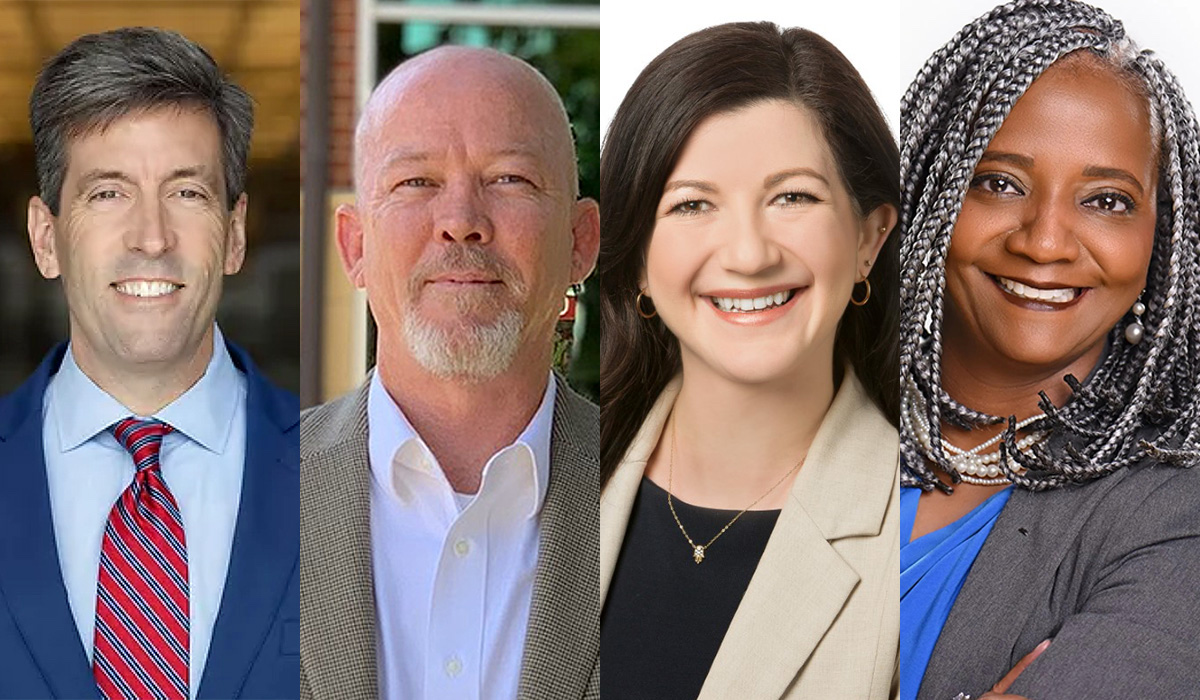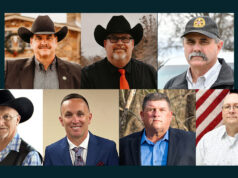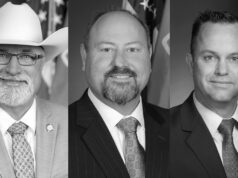

Rep. Monroe Nichols (D-Tulsa) and County Commissioner Karen Keith emerged from a seven-candidate field Tuesday night to advance to a Nov. 5 Tulsa mayoral runoff.
Signaling his momentum in a race where polling and conventional wisdom had Keith leading the pack for months, Nichols finished first with 18,729 votes (33.1 percent). Keith received 18,457 votes (32.6 percent) and narrowly edged out businessman Brent VanNorman, who placed a close third with 18,019 votes (31.8 percent). VanNorman, who ran as the conservative alternative to the two elected Democrats, missed the runoff by 439 votes.
With Nichols and Keith advancing to the runoff, no Republican candidate will appear on the mayoral runoff ballot for the first time since Tulsa’s municipal elections became nonpartisan. The runoff election will coincide with the Nov. 5 presidential election, meaning a larger and more partisan turnout could affect the race’s conclusion.
Both Nichols and Keith have prioritized addressing homelessness in the city as a top priority, but their stances have differed on whether the city should pursue lawsuits opposing tribal governments’ criminal jurisdiction. They have also clashed in their responses to issues with the Tulsa County Family Center for Juvenile Justice.
Keith has served as the Tulsa County commissioner for District 2 since 2008 and is the only elected Democrat in county office. She worked for former Mayor Bill LaFortune before running for office and as a journalist before that.
Nichols is a former University of Tulsa football player who worked for former Mayor Kathy Taylor. He has served in the Oklahoma House since 2016.
VanNorman fell just shy of drawing enough votes to advance to the runoff despite a last-minute endorsement from former Gov. Frank Keating and several other local Republicans.
Businessmen Casey Bradford and John Jolley received 823 votes (1.5 percent) and 366 votes (0.7 percent) respectively. Kaleb Hoosier topped perennial candidate Paul Tay with 105 votes (0.19 percent) to 86 votes (0.15 percent).
Homelessness, juvenile center teed up for Tulsa mayoral runoff
Campaigning for more than a year, Keith pitched herself to voters as the bipartisan choice — a longtime registered Democrat who worked for Republican Mayor Bill LaFortune — who would focus on homelessness, public safety and streets.
“I work across party lines,” Keith said at an Aug. 8 mayoral debate. “My vision is safe neighborhoods, well maintained streets and affordable housing.”
Also running for the post for more than a year, Nichols campaigned on addressing homelessness and “co-governing” with the Cherokee Nation, Muscogee Nation and Osage Nation to address the city’s problems.
“I believe that Tulsa has more potential than any other community in the country,” Nichols said at the mayoral debate. “I also know that potential will never be reached unless we dispose of some of these challenges that are nipping at our heels.”
As the Tulsa mayoral election enters overtime, Keith and Nichols will have an extra three months to campaign and sell voters on their visions for the city.
RELATED
Tulsa elections: 4 incumbents reelected, 3 seats sent to November runoff by Matt Patterson & Blake Douglas
In addition to pushing for partnerships and collaboration with tribal governments, Nichols has also said he would divert from the current mayoral administration’s policy of pursuing criminal jurisdiction over tribal citizens in municipal court. Keith said she believed the City of Tulsa had the authority to prosecute tribal citizens, but she also advocated talking with tribal leaders to reach a “consensus” to resolve the “legal issue.”
Another issue this campaign season all across Tulsa County is how to address issues at the Family Center for Juvenile Justice. The facility was taken over by the Tulsa County Board of County Commissioners after several former employees were charged and a federal lawsuit alleged a “rape culture” in the facility allowed the systematic abuse of several children.
During her campaign, Keith has listed building the facility as one of her key accomplishments. She has defended her initial response to the scandal and said there was “a lot of misinformation” surrounding the facility. She has argued conditions have improved since the Board of County Commissioners took control of the facility.
Nichols criticized Keith’s response to the scandal as lacking compassion at the mayoral debate.
“Since this started, there’s not been one time any county commissioner — including Commissioner Keith, who I like very much — who has said anything compassionate about what those kids went through or told us what they were gonna do about it at any point in time, and I think that is a real tragedy in this situation,” Nichols said.
In other Tulsa results, county commissioner general set
In the race to succeed Keith, the sole Democrat on the Tulsa County Board of County Commissioners, communications professional Sarah Gray and 20-year political veteran and former State Rep. Lonnie Sims will face off in the November general election.
Gray won the Democratic nomination Tuesday by defeating former Tulsa City Councilwoman Maria Barnes, 7,776 votes, or 59.07 percent, to 5,387 votes, or 40.93 percent. Gray and Barnes both defeated Keith’s former chief deputy, Jim Rea, in an earlier primary.
Meanwhile, Sims earned the Republican nomination, earning 6,127 votes, or 54,63 percent, to 5,089 votes, or 45.37 percent, for his opponent, Melissa Myers.
The county commissioner race formerly featured an independent candidate, Josh Turley, who dropped out of the race before Election Day.
Also Tuesday, Tulsa voters approved a pair of propositions, adjusting the salaries of Tulsa City Council members and the city auditor. Proposition No. 1, which approved changes to the city councilors’ salaries and how they are calculated, passed with 35,278 votes, or 63.39 percent support.
Proposition No. 2 changed the city auditor’s salary and passed with 31,700 votes, or 57.01 percent support. The city auditor will now make $142,500.




















